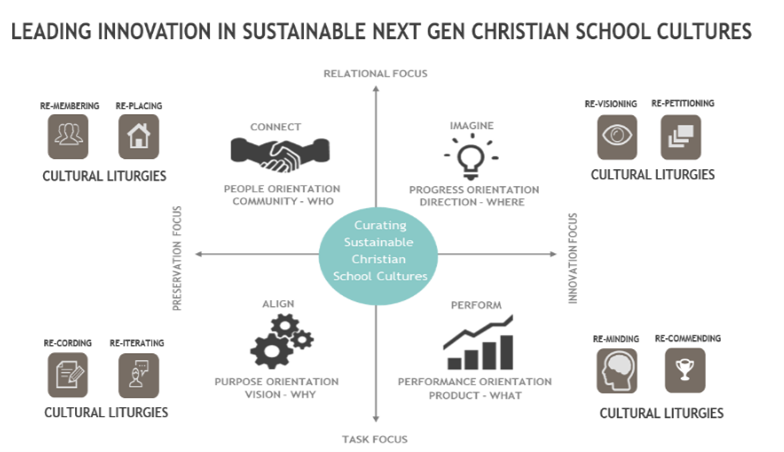Whilst no doubt revealing my age and potentially losing anyone under 40 reading this blog, I can still vividly recall the thrill I used to get watching Saturday morning cartoons on our Rank Arena black and white box television. One particular show, The Jetsons, was particularly memorable – their world of 2062 seemed to be full of amazing gadgets and futuristic technology that made the clunky analogue grey world of the 1970’s as bland as the beige walls that absorbed our dank living room. The world of George, Jane, Judy, Elroy Jetson and their cheeky canine Astro was a taste of an exciting new 21st century world that was yet to unfold – filled with seemingly endless possibilities through technology and creative thinking.
Some 60 years on from the show’s 1962 release date reveals the rapid transformation of aspects of our culture into a Jetsons’ reality. A cursory reflection of some of the remarkable gizmos and gadgets imagined by the show’s creators underscores this: The video calls between characters was a truly mind-blowing concept in the spiral corded, circular dial, hand receiver world of my childhood but is now commonplace in any laptop and smart phone. Rosie the futuristic robot maid is now the Roomba and I-robot in homes across the nation. The tablet computers and smart watches used by George and Jane are now ubiquitous through our culture and the jaw dropping slimline TV screens and electronic wizardry of the household of 2062 is now an everyday experience within our modern homes.
The First Christian School in Australia
In the same year (1962) that this ground-breaking cartoon series was created, another truly landmark event was occurring that was no less memorable, innovative, and transformative - the first parent controlled Christian school was established in Australia at Kingston, Tasmania. Inspired by a firm conviction of the purpose of education that was based upon a Biblical worldview where God was acknowledged in all things, this group of everyday Christian men and women responded in their cultural moment with a God inspired vision of what could be. In an age of no government funding, limited resources and restricted opportunity, The sacrifice, conviction, faith and commitment displayed by these pioneers to their cause became the standard model for proceeding decades for similar like-minded pioneers establishing Christian schools across the nation. The world of 1962 was nearly two generations away from our contemporary Christian school settings, and yet we and our Christian school communities still experience the enduring legacy of these Christian pioneer innovators and are the beneficiaries of their creative and adaptive decision making that stimulated meaningful change, flourishing and birthed a new model of schooling across Australia in the decades that followed.
Both of these contrasting examples from 1962 represent two distinct expressions of what is commonly regarded as a contemporary educational buzzword: “innovation”. Of course, in contemporary 21st century schooling, we promulgate this term as a veritable panacea to almost every educational ill besetting our schools and classrooms. (It’s even in my CSA job title)!! Because of the widescale use (and misuse!) of this word, I would like to suggest we pause to reflect on four key principles that future-facing Christian school leaders may adopt to thoughtfully reimagine innovation from a distinctively Christian perspective in their school communities.
1. View Innovation as a posture and not merely a product
Whilst contemporary Christian school leaders need to be adaptive to the rapid change that is ever present and suitably prepare students well for an uncertain future, Beth Green contends that school leaders often misguidedly adopt approaches to innovation that only focus on technology usage in a product based, consumerist and always-changing modality. Highlighting this, George Couros in his though provoking book “The Innovator’s Mindset,” laments “What I continue to observe, is that in many schools, they use the word innovation and connect it directly to how people use technology. Although technology provides opportunities that did not exist before, its use does not equate to being “innovative.” In fact, I have actually seen that sometimes technology has led to some people being less innovative… It is how we think and what we create, not what we use”.
In her Plenary Talk at the 2019 Kuyers/INCHE conference: Shaping Christian Learning, Green challenges the Jetsons inspired product narrative regarding innovation by reimagining innovation to be a posture and practice rather than associating the term merely with consumption and product driven technology. It is for this reason that we need to be intentional about how we define what we mean by innovation in 21st century Christian schools. The etymology of the word innovation comes from the Latin word Innovare which means to renew. There is, therefore, a reforming, renewing and transformative process that lies at the heart of innovation that seeks to bring renewal, regeneration and flourishing to situations, problems and challenges in broken and dislocated world.

The call to innovate matters because it contributes to human flourishing, a just and peaceful society – and to shalom in all of its variegated dimensions. The mandate to creatively engage in this flourishing is grounded in who we are as image bearers which God entrusted to mankind (Genesis 1:28; 2:15-20). Within the context of this flourishing, in their ACSI Blog post, Swaner and Ellefsen propose that innovation means “developing adaptive solutions to current challenges and opportunities” within our Christian school communities. They suggest that “Such a posture is open-minded yet purposeful, curious yet thoughtful, challenging yet grace-filled, and ambitious yet humble. It involves asking tough and often uncomfortable questions—and considering out-of-the-box adaptive solutions that may come from all corners of the education profession, as well as from other fields”.
It is important that Christian school leaders to view innovation as a posture in this age of complexity and thoughtfully reflect on what story of innovation is shaping their school communities. Furthermore, as a result of redefining innovation as a posture, the larger question of what is innovation actually for within our settings and the direction that story is taking us becomes the essential conversation needed within our school communities in an era of constant change and disruption. How we answer that question – theologically, anthropologically and pedagogically and our posture towards that response will determine the shape, distinctives and practice of our Christian schools as we journey towards 2062.
2. Embrace the paradox of continuity and change
Whilst the Jetsons had an unmistakably futuristic feel, what appealed to me most about the program that was it had just enough of my present reality and daily rituals to make 2062 readily identifiable. The incredible technology and futuristic thinking was contextualised in everyday practices and a sense of the ordinary: school, work, meals around a table, exercise, relationships, even watching TV. Similarly, those innovative early Christian pioneers in Christian schools established traditions, rituals, habits, and symbolic elements that provided meaning making for all within their school communities. These practices and habits consolidate and animate any innovation process. For Christian school cultures and communities to flourish innovatively over the next half century and beyond, school leaders must paradoxically embrace both creative and dynamic ways to reimagine and create whilst also honouring and celebrating the core vision and purpose that established their schools in the founding generation.
Building upon this concept, James KA Smith contends that “In order to foster a Christian imagination, we don’t need to invent; we need to remember”. When we do not rehearse constantly our Christian school story: who we are, why we exist, how we embody our cultural liturgies and practices, how we are reminded of our core purpose and how we worship and express shalom and human flourishing within and throughout our communities; we will invariably drift away from our core purpose. The diagram below conceptualises these tensions and formed the basis of my PhD on cultivating innovative and yet sustainable Christian school cultures in an era of change.
Sadly, many leaders with a naïve approach to change agency and a popularist mandate to disrupt can expend so much activity and effort on pragmatic opportunism and faddish “new things” but these can come at the expense of the very soul of the Christian school community. In his Faith & Leadership article on "The gift of constraints", Smith cautions these would-be innovators:

Sometimes we bristle under the constraints put upon us by founders and historical bodies that know nothing of our contemporary challenges. All of us have daydreamed about what it would be like to be free of such constraints – to “reimagine” the institution from scratch… [but] could we ever imagine receiving such constraints as gifts? Indeed, is it possible that the constraints of handed down traditions could be catalysts for creativity and innovation?"
To paraphrase James KA Smith’s response for an educational audience, we cannot hope to re-create the world if we are constantly reinventing “education”. Instead, we may well just find we reinvent ourselves right out of the story! (You Are What You Love, p. 182). By embracing both continuity and change, we are adhering to a biblical principle for innovation for “those who have been trained for the kingdom… are able to bring forth treasures both new and old” (Matt 13:52).
3. Invest in people forming practices and priorities
Whilst the Jetsons futuristic vision remains somewhat unfilled in regard to some aspects of its space age locale and fantastically fictional plotlines, the pathos and life experiences of the characters were always relatable and resonated with my own childhood experiences. Such human connection lies at the heart of all good storytelling and all meaningful innovation. What is unmistakably clear is the commitment Christian school leaders must make to an educational vision that embraces Arthur Holmes poignant challenge: “The question to ask about Education is not “What can I do with it?” but rather “What is it doing to me – as a person?” Education- good education- has to do with the making of persons”. The making of persons - good, wise, moral, truthful, thoughtful, curious, sincere persons - is a truly radical and innovative thought in every generation and especially important for every Christian school to maintain in this pragmatic, reductionistic and relativistic time.
Our thinking and practice arising from this human connection will also compel us to consider the words of John Naisbitt, who after synthesising decades of thinking in the futurist field of social research, concluded that “ The most exciting breakthroughs of the 21st century will not occur because of technology but because of an expanding concept of what it means to be human”.
Therefore, to ensure that our technological advancements and innovative activities and practices serve human flourishing, we must continually and deliberately reflect on all our adaptive solutions and change initiatives to ensure they align with a biblical understanding of our image bearing natures – the Imago Dei. That we are made in God’s image has deeply significant consequences for our leadership, our teaching, our learning communities and our students, and our innovative priorities, principles and practices must always seek to transcend any disconnection from human flourishing in preference to merely consuming products and as an end in and of itself in our 21st century Christian schooling models.

4. Actively Cultivate Imagination, Curiosity and Wonder in and for Community
A final principle that Christian school leaders can consider as they look towards 2062 is intentionally finding ways to cultivate imagination and wonder across their communities. Just as the creative imagination of the creators of a cartoon series filled minds with wonder and curiosity, so too the next generation of Christian school leaders will need to ensure that hearts and minds are captivated with the thrill of what could be within our Christian school communities. Imagination is a fundamental human capability that underpins discovery, problem-solving and innovation, but so often our concepts of imagination are limited to an individual emphasis or personalised capacity, rather than something that collectively can be exercised to bring about shared flourishing for all. A future-facing Christian school community will seek to cultivate this wonder, both personally and collectively, allowing delight, curiosity and creativity to flow from engaged hearts and eager minds. New technologies in this context (or whatever form and style this may take in 2062) serve and complement the learning process rather than overwhelm, ostracise and isolate.
When Christian leaders cultivate wonder and imagination within their communities, they recognise that there is a “chief end” to their innovative pursuits– which is to glorify God and to enjoy Him in all things, curiously exploring the vast wonder of His creation. Hughes (2001) describes the benefit for students who engage in innovative tasks and activities from this perspective “But blessed is the student... that embraces wonder and imagination, for that student will soon discover there is knowing in the midst of not-knowing, and answers in the midst of questions... forced to wonder, to imagine and to question” (p.105).
To embody and embrace such wonder and paradox within our Christian communities inspires us towards wondrous new ways of re-imagining and re-conceptualising “questions”, “answers” and “solutions” within our school communities that are not bound by modes that force schools to merely conform, comply and consume. With this assurance, we can also begin to playfully and prayerfully imagine the exciting, envisioned futures for our school communities and reaffirm the clarion call presented by Stuart Fowler to all Christian school leaders:

Christian educators ought to be trailblazers in tackling the issues thrown up by the changing social environment rather than mere modifiers of trails blazed by others. ... Our calling as Christian educators is to develop a Gospel-enlightened understanding of the issues that face all schools in today’s changing societies, so that we may set educational directions that ensure a humanity-fulfilling experience for students in the schools of today and tomorrow."
- Stuart Fowler, 1998, p.183
May you, as a trail blazing and innovative Christian School leader, be led with grace, wisdom, discernment and an overwhelming sense of anticipation as you view innovation as a process; embrace continuity and change; align your innovation activities to a biblical understanding of what it means to be human; and imaginatively and collaboratively explore new solutions to human problems with wonder in this cultural moment. By reframing innovation through these four principles, the wise and prudent Christian school leader entrusts the future of 2062 and beyond – with all of its uncertainties, disruptions and upheavals - to the Great Innovator who has been faithful through all the seasons of a school’s past and will remain faithful into the future as His kingdom comes within our Christian school communities (Philippians 1:6).